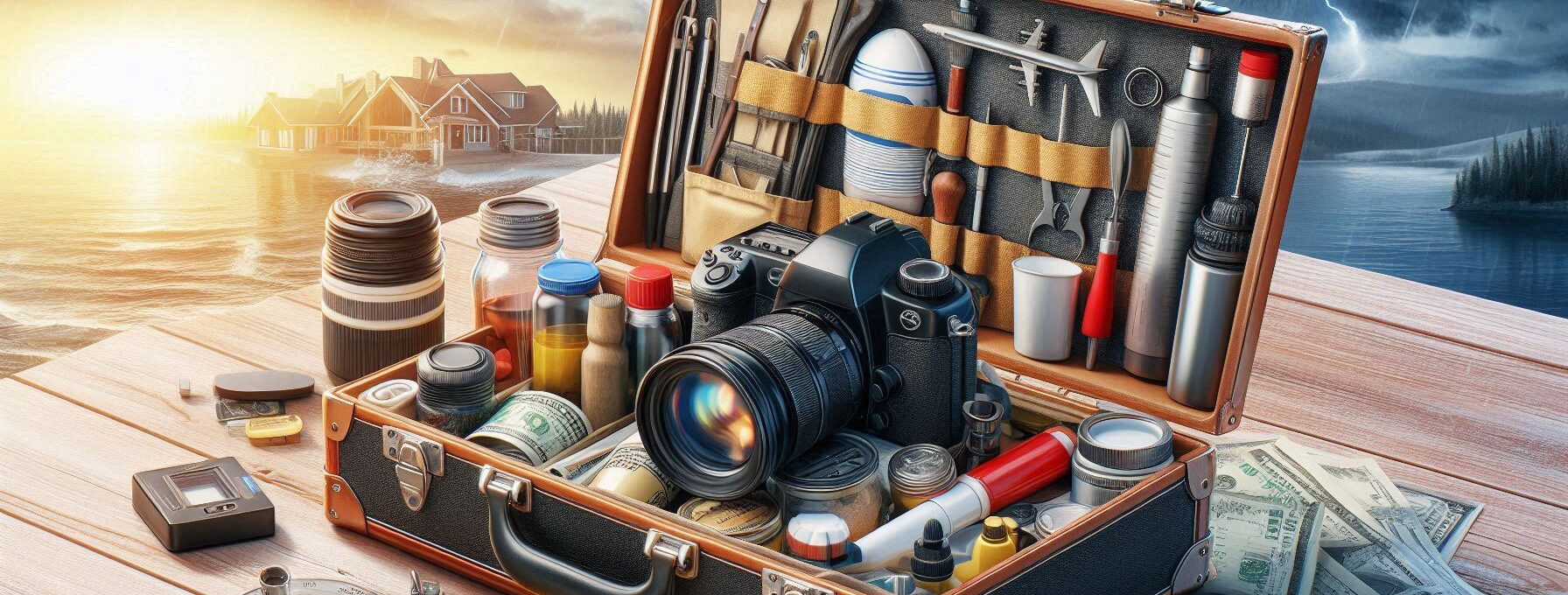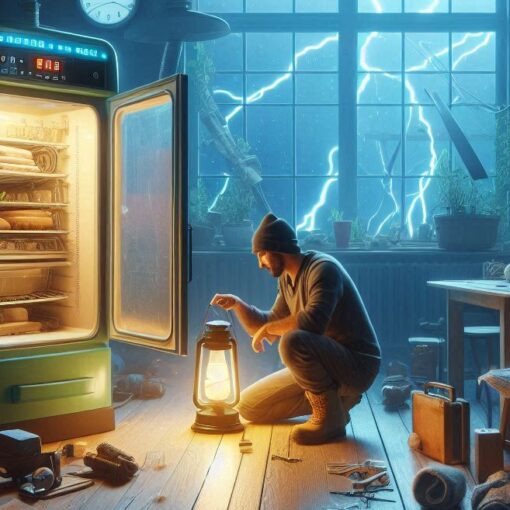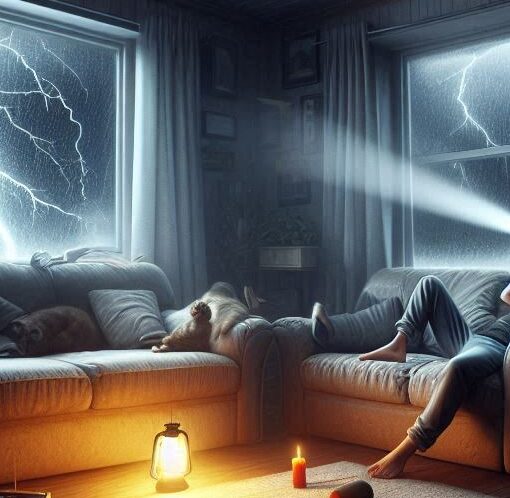
Let’s face it: natural disasters are like that one relative who shows up uninvited and eats all the snacks. You know they’re coming, but you never quite know when.
Whether it’s hurricanes, earthquakes, or a sudden influx of squirrels plotting world domination, being prepared is essential. So, grab your emergency kit (you do have one, right?), and let’s dive into how to prep for these unexpected surprises with a healthy dose of humor.
Understanding What Could Happen
First things first: what kind of disasters are we talking about? It’s easy to think of the big ones—hurricanes swirling toward your beach house or tornadoes that could turn your roof into a flying saucer.
But don’t forget about the more mundane yet equally terrifying events like floods or wildfires. Honestly, I once thought my biggest worry was getting stuck in traffic on my way to work until I found out my town had been built on an old riverbed!
You might be wondering how to prepare for something as unpredictable as nature itself. The truth is that understanding the risks in your area is half the battle.
If you live near water, maybe invest in some floaties—not just for pool parties but for emergencies! And if you’re somewhere prone to earthquakes, consider securing those precious heirlooms instead of letting them become shrapnel during the next seismic shake-up.
So, take a moment and research what disasters are most likely where you live. This isn’t just about knowing; it’s about arming yourself with information so you can tackle any calamity like a seasoned pro—or at least someone who knows where their flashlight is located.
Building Your Emergency Kit
Now that you’re aware of potential disasters lurking around every corner, let’s talk emergency kits. Imagine this scenario: a hurricane is barreling down on your house while you frantically search for batteries—only to find last year’s Halloween candy instead. Not ideal!
To avoid such mishaps, start by gathering essentials like water (at least one gallon per person per day), non-perishable food (think canned beans and granola bars), and first aid supplies—because nothing says “I’m prepared” like having band-aids handy when Aunt Edna decides to help cook dinner during an earthquake.
And speaking of cooking, let’s not forget tools! A manual can opener should definitely make the cut because trying to open cans with a rock may lead to injuries—and possibly lawsuits from anyone watching nearby.
Also include items like flashlights (with extra batteries!), blankets (for warmth or impromptu pillow fights), and important documents stored in waterproof bags so they don’t go sailing away during floods.
Oh! And don’t overlook personal hygiene items; trust me—you’ll want toothpaste when you’re living off granola bars for days on end!
Creating an Evacuation Plan

Once you’ve got your emergency kit stocked up with everything except that expired bottle of ketchup from 2003 (seriously, throw that out), it’s time to create an evacuation plan. This isn’t just about knowing which shoes you’ll wear when fleeing from impending doom—it involves strategic thinking!
Start by mapping out multiple escape routes from your home because relying solely on Google Maps during chaos will only lead you into traffic jams filled with other panicking neighbors who also forgot their emergency kits. To be fair, I once tried escaping through my backyard only to realize there was a fence blocking my way—talk about embarrassing!
Consider designating meeting points outside your home where family members can regroup if separated—a park bench or even the local ice cream shop works wonders since everyone loves ice cream—even in emergencies! Plus, it gives you an excuse to indulge later after surviving whatever disaster comes knocking.
Don’t forget communication plans too! In our tech-obsessed world where we rely heavily on smartphones—which may not work during crises—it helps if everyone knows how to reach each other using alternative methods: walkie-talkies anyone?
Staying Informed During Emergencies
Alright folks, here comes another vital tip: stay informed during emergencies! Think back to those moments when weather alerts interrupted your favorite TV show—the horror! But honestly? Those interruptions could save lives!
Sign up for local alert systems through texts or apps so you’re always updated on potential threats heading your way. And remember those trusty NOAA weather radios? They’re worth their weight in gold when power goes out; plus listening intently feels much cooler than scrolling through social media while waiting for news updates.
By the way, let’s talk about community resources too! Local shelters might serve hot meals and provide safety from storms—so familiarize yourself with nearby options before disaster strikes because no one wants surprise visits from strangers mid-crisis!
And don’t underestimate social media either; platforms often share real-time updates regarding road closures or safe zones which may help keep panic levels lower than usual while ensuring people stay connected throughout challenging times.
Practice Makes Perfect
Finally—and this might sound silly—but practice makes perfect! Just like learning how not-to-burn-toast takes trial-and-error lessons over time (trust me—I speak from experience!), running drills at home prepares everyone mentally should real-life situations arise unexpectedly.
Set aside designated times each month where family members simulate various scenarios: “What would we do if there was suddenly an earthquake?” Or “How fast can we pack our bags?” These exercises can be both fun AND educational—as long as nobody accidentally knocks over Grandma’s prized porcelain collection again…
Moreover practicing allows us room for improvement without facing actual danger while instilling confidence within ourselves knowing we’ve trained adequately beforehand rather than scrambling last minute hoping everything falls into place perfectly—spoiler alert: it won’t!
Now go forth armed with knowledge—and maybe some snacks—and conquer whatever natural disaster life throws at you next time!
Suggested Resources:
Emergency Preparedness Guide
https://www.ready.gov/prepare
Natural Disaster Survival Tips
https://www.redcross.org/get-help/how-to-prepare-for-emergencies.html
Disaster Readiness Checklist
https://www.fema.gov/emergency-managers/risk-management/disaster-recovery




